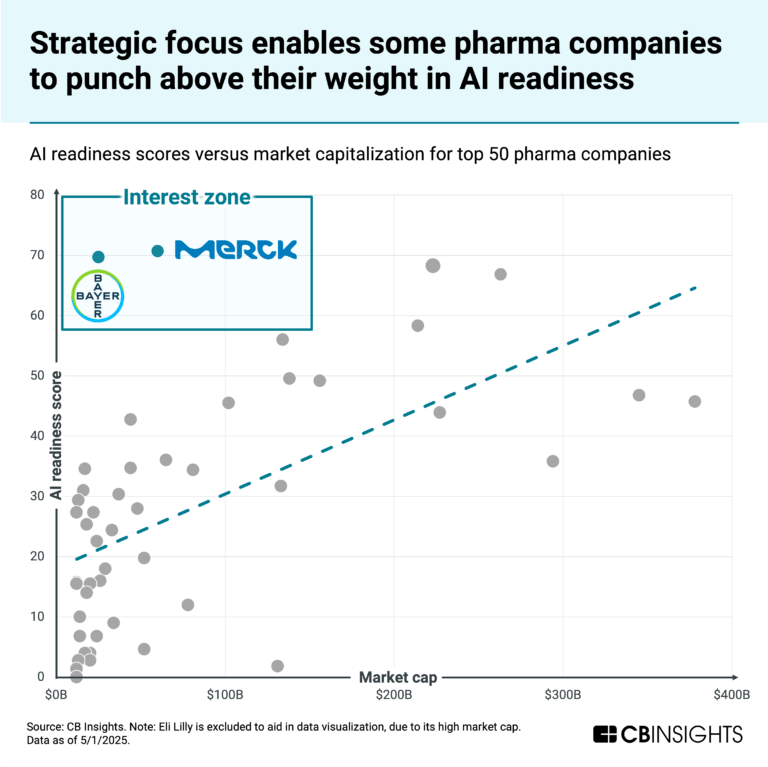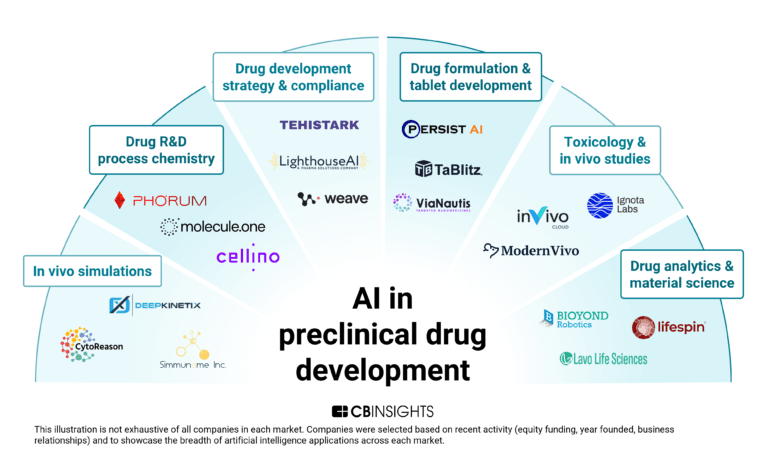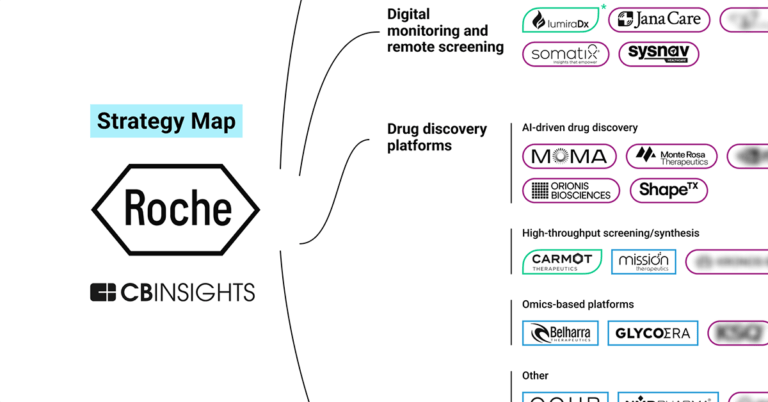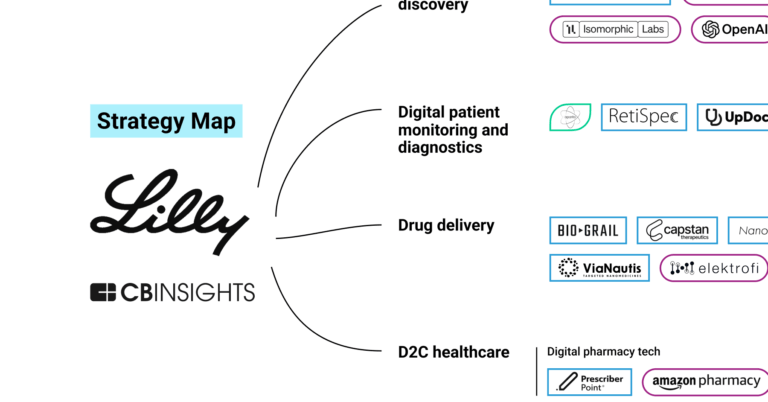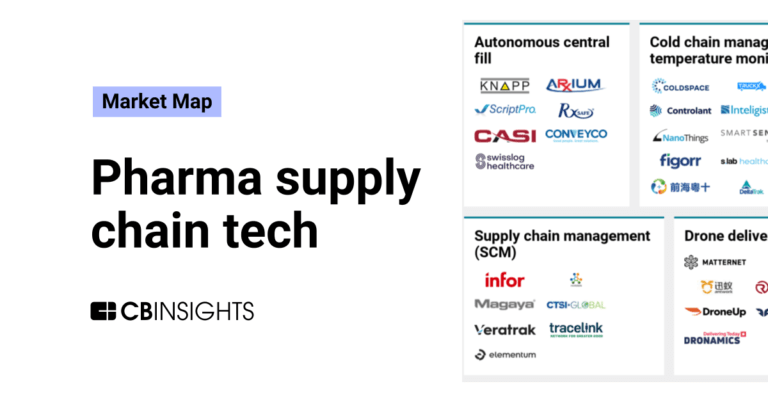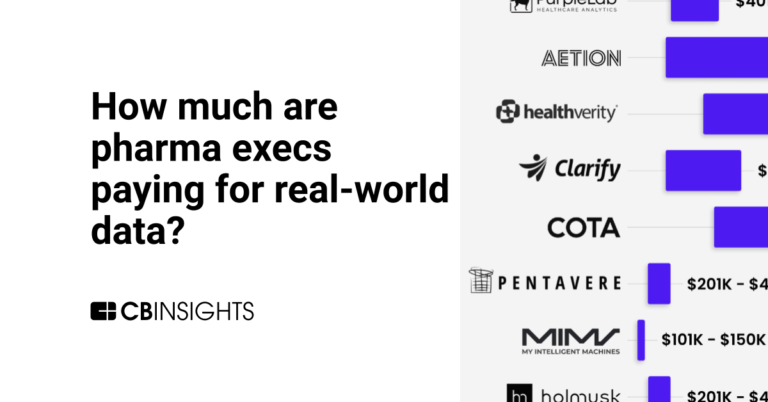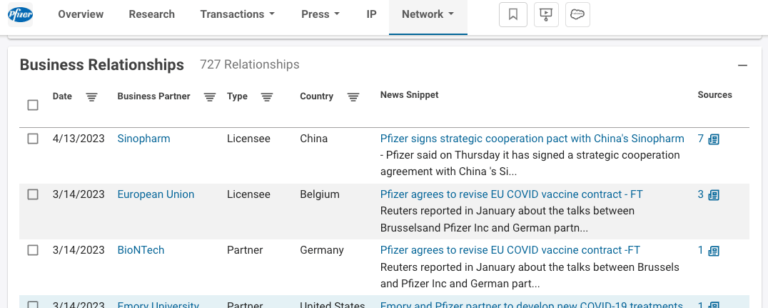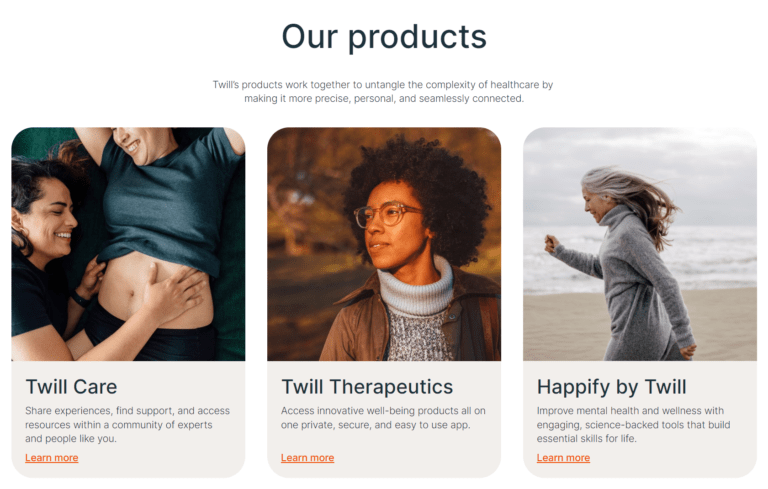
Pfizer
Founded Year
1849Stage
IPO | IPODate of IPO
6/22/1942Market Cap
135.71BStock Price
23.97Revenue
$0000About Pfizer
Pfizer operates as a biopharmaceutical company that focuses on the development of medicines and vaccines. The company offers products for treating diseases and improving health outcomes, including therapies for internal medicine, inflammation and immunology, oncology, and vaccines. Pfizer's products are developed through research and clinical trials to ensure safety and efficacy. Pfizer was formerly known as Charles Pfizer & Co. It was founded in 1849 and is based in New York, New York.
Loading...
Loading...
Research containing Pfizer
Get data-driven expert analysis from the CB Insights Intelligence Unit.
CB Insights Intelligence Analysts have mentioned Pfizer in 9 CB Insights research briefs, most recently on Jul 3, 2025.
Expert Collections containing Pfizer
Expert Collections are analyst-curated lists that highlight the companies you need to know in the most important technology spaces.
Pfizer is included in 1 Expert Collection, including Conference Exhibitors.
Conference Exhibitors
5,302 items
Pfizer Patents
Pfizer has filed 1256 patents.
The 3 most popular patent topics include:
- clusters of differentiation
- transcription factors
- monoclonal antibodies

Application Date | Grant Date | Title | Related Topics | Status |
|---|---|---|---|---|
12/17/2019 | 4/8/2025 | Prodrugs, Amines, Neurological disorders, Fluoroarenes, Rare diseases | Grant |
Application Date | 12/17/2019 |
|---|---|
Grant Date | 4/8/2025 |
Title | |
Related Topics | Prodrugs, Amines, Neurological disorders, Fluoroarenes, Rare diseases |
Status | Grant |
Latest Pfizer News
Sep 16, 2025
A CDC advisory panel, influenced by HHS Secretary Robert F. Kennedy Jr., plans to review key childhood vaccines including those for COVID-19, hepatitis B, MMRV, and RSV, amid Trump administration efforts to reassess policies. Experts fear changes could erode disease control and spark outbreaks in vulnerable populations. Influence Key Childhood Vaccine Review Amid Outbreak Fears Written by Andrew Cain Monday, September 15, 2025 In a move that has sent ripples through the public health community, the Centers for Disease Control and Prevention’s advisory panel, newly influenced by appointees from Health and Human Services Secretary Robert F. Kennedy Jr., is set to scrutinize key elements of the U.S. childhood immunization schedule. This review, slated for discussion in upcoming meetings, targets vaccines for COVID-19, hepatitis B, and the combination shot for measles, mumps, rubella and varicella, among others. Public health experts worry that any alterations could undermine decades of progress in controlling infectious diseases, potentially leading to outbreaks in vulnerable populations. The panel’s agenda also includes the respiratory syncytial virus (RSV) vaccine for infants, a relatively new addition to the schedule. According to recent reports, the committee aims to evaluate safety data, efficacy, and the cumulative effects of multiple vaccinations—a long-standing demand from vaccine skeptics. This comes amid broader efforts by the Trump administration to revisit vaccine policies, with Kennedy’s involvement drawing particular scrutiny due to his history of questioning vaccine safety. Scrutinizing Long-Standing Protections Against Preventable Diseases Data from established sources highlight the stakes: The hepatitis B vaccine, administered shortly after birth, has dramatically reduced chronic infections that can lead to liver cancer. Similarly, the MMRV vaccine has nearly eradicated measles in the U.S., with outbreaks now largely tied to unvaccinated communities. A piece in Scientific American details how these shots, backed by extensive clinical trials, have saved millions of lives globally, yet the panel’s review could recommend changes based on new interpretations of adverse event reports. Critics argue that the panel’s composition, including members selected by Kennedy, introduces bias. For instance, posts on X from users like Children’s Health Defense echo optimism about studying cumulative effects, while others express alarm over potential rollbacks. This tension is amplified by FDA plans to present data linking COVID-19 vaccines to rare child deaths—25 cases, per leaks reported in NBC News —though experts caution these are unverified and represent a tiny fraction of administered doses. Balancing Innovation with Evidence-Based Caution The review extends to broader immunization strategies, including the revival of a 1990s-era task force on vaccine safety, as noted in updates from The Vaccine Reaction . This task force, dormant since 1998, will investigate interactions between vaccines, addressing gaps in data that proponents say have been ignored. Industry insiders point out that while the current schedule, detailed on the CDC’s website as of August 2025, recommends up to 28 doses in a child’s first year, real-world evidence shows high safety profiles. However, fears of eroding public trust are palpable. A Nature analysis warns that questioning these vaccines could fuel hesitancy, especially amid rising anti-vaccine sentiment on platforms like X, where posts from figures like Aaron Siri criticize CDC recommendations for conflicts of interest. The panel’s chairman has emphasized a data-driven approach, but skeptics in the medical community, including the American Academy of Pediatrics, have issued their own evidence-backed schedules as a countermeasure, per CIDRAP . Potential Ramifications for Public Health Infrastructure Economically, any shifts could impact pharmaceutical giants like Pfizer and Moderna, whose COVID-19 shots face renewed examination. Bloomberg reported in June 2025 that the panel’s subcommittees will probe vaccines unstudied for over seven years, potentially leading to label changes or pauses. This aligns with Kennedy’s push for transparency, as outlined in Politico , but raises concerns about politicizing science. For healthcare providers, the uncertainty complicates patient counseling. NPR’s health news section highlighted in June how changes might affect millions, urging vigilance against misinformation. As the panel convenes, the debate underscores a pivotal moment: Will this review strengthen vaccine science through rigorous inquiry, or risk unraveling protections that have defined modern public health? Insiders watch closely, knowing the outcomes could reshape immunization norms for generations. Subscribe for Updates
Pfizer Frequently Asked Questions (FAQ)
When was Pfizer founded?
Pfizer was founded in 1849.
Where is Pfizer's headquarters?
Pfizer's headquarters is located at 66 Hudson Boulevard East, New York.
What is Pfizer's latest funding round?
Pfizer's latest funding round is IPO.
Who are Pfizer's competitors?
Competitors of Pfizer include ImmuNovX Biotech, MorphoSys, Turning Point Therapeutics, Apellis Pharmaceuticals, Samsung BioLogics and 7 more.
Loading...
Compare Pfizer to Competitors
Sumitomo Pharma is a biopharmaceutical company focused on developing therapeutic and scientific breakthroughs. The company's main offerings include the development of novel cancer therapeutics and a robust pipeline of treatments aimed at addressing unmet clinical needs in oncology. Sumitomo Pharma was formerly known as Sumitomo Dainippon Pharma. It was founded in 1897 and is based in Osaka, Japan.

Taisho Pharmaceutical operates in the pharmaceutical industry. It provides medicinal drugs and over-the-counter medications. It was founded in 1912 and is based in Tokyo, Japan. In January 2024, Taisho Pharmaceutical was acquired by Otemon at a valuation of $4.88B.

Cerba HealthCare provides medical diagnostics within the healthcare sector. It offers diagnostic services including proximity biology, specialty biology, clinical trial biology, anatomical and cytological pathology, medical imaging, and preventive biology. These services are used for the diagnosis and management of diseases. It was founded in 1967 and is based in Issy-les-Moulineaux, France.
Almatica Pharma operates as a pharmaceutical company focused on developing medicines within the psychiatry and neurology therapeutic areas. The company offers a portfolio of products aimed at addressing mental health and neurologic conditions, as well as providing patient support through copay savings programs. Almatica Pharma's research and development pipeline is designed to produce medicines for central nervous system diseases. It was founded in 2009 and is based in Morristown, New Jersey.

LifeArc operates as a self-financing medical research charity. The organization specializes in drug discovery, diagnostics development, antibody humanization, and intellectual property management, aiming to lab-based scientific discoveries into diagnostics, treatments, and cures. LifeArc collaborates with various sectors including the pharmaceutical industry, biotechnology sector, and academic institutions to develop and commercialize medical research. LifeArc was formerly known as MRC Technology. It was founded in 2000 and is based in London, United Kingdom.

Chongqing Pharmaceutical (Group) operates in China's pharmaceutical industry. The company specializes in the wholesale and retail of pharmaceutical products, playing a crucial role in the distribution and accessibility of medications across various healthcare settings. It was formerly known as Southwest Branch of China Pharmaceutical Corporation. It was founded in 1950 and is based in Yuzhong, China.
Loading...

